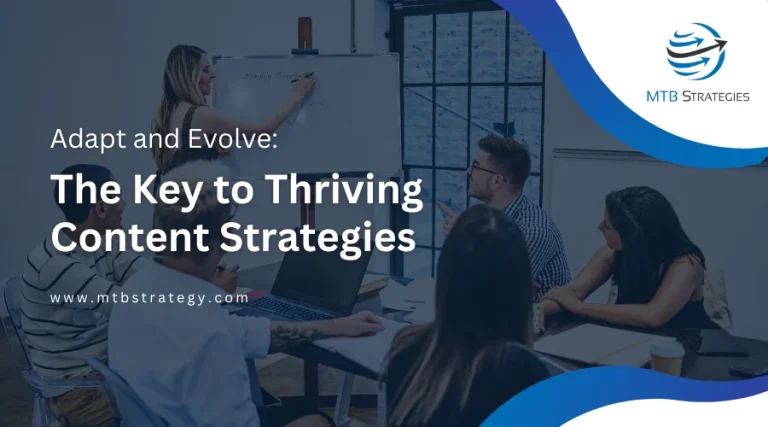Right now, as you read this, there are countless people searching on Google for products, services, or solutions that your business offers. The question now is, how on earth will they find your website among the top search results?
If your website isn’t ranking on the first page of Google, chances are they won’t. And that’s a missed opportunity, considering Google’s dominance in the search engine market, with over 85% of global traffic and a staggering 270 million unique visitors in the U.S. alone. Furthermore, a staggering 75% of internet users never venture beyond the first page of search results.
This is where Search Engine Optimization (SEO) becomes paramount. SEO is a marathon, not a sprint, and it requires continuous effort to adapt to Google’s frequent algorithm updates. The days of keyword stuffing are long gone; Google’s algorithm has evolved to understand user intent and prioritize websites that provide valuable answers.
If you want to improve your website’s Google keyword rankings, you need to strike a balance between meeting search engine requirements and delivering an exceptional user experience. Here are 12 actionable strategies to drive more search traffic and boost your online visibility.
1. Measure Your Google Rankings
The first step is to understand where you stand. Measure your current keyword performance by exporting keyword data from Google Search Console and landing page traffic from Google Analytics. This data will provide valuable insights into your most valuable keywords, opportunities for improvement, and underperforming keywords.
2. Target the Right Keywords
Keyword targeting is a critical aspect of SEO. Understand the search intent behind your target keywords and assess the difficulty of ranking for them. Conduct a thorough SERP analysis to identify related searches, Google autocomplete suggestions, and other search features that can inform your content optimization.
3. Clean Up Your Site Structure
A solid website structure is essential for SEO success. Ensure your site is easily navigable by both users and search engines. Resolve technical issues, fix broken links, and address duplicate content to enhance your keyword visibility.
4. Pay Attention to User Experience Signals
User experience and brand equity play a crucial role in organic search visibility. Google’s Core Web Vitals report can help you monitor page loading times and ensure your website is responsive, especially on mobile devices.
5. Optimize for Users and Search Engines
Strive to create content that is clear, concise, and provides accurate information while avoiding jargon. Proper use of header tags improves content readability, and engaging images with optimized ALT text and file naming can enhance your SEO efforts.
6. Create Eye-Catching and Engaging Titles
The title tag is a powerful SEO element and the first thing users see in search results and on social media. Craft compelling title tags that incorporate target keywords and also pique users’ interest. Consider using emotional language, curiosity-driven statements, and list posts with numbers to encourage clicks.
7. Stay on Top of Algorithm Updates
Keeping abreast of Google’s algorithm updates is crucial for SEO professionals. Understanding these updates can help you track keyword and traffic fluctuations and adapt your strategy accordingly.
8. Provide Answers to the Questions People Are Asking
Google aims to provide users with the best answers to their queries, and featured snippets have become increasingly important. Optimize your content to rank for featured snippets and provide direct answers to user questions.
9. Build Valuable Inbound Links
Inbound links from authoritative websites are a significant factor in SEO. Create link-worthy content based on keyword research and monitor brand mentions for opportunities to gain inbound links.
10. Promote Your Content Strategically
Leveraging non-SEO channels can boost visibility and drive traffic to your content. Utilize social media, email marketing, and influencer interactions to support your link-building efforts.
11. Continuously Optimize and Improve Content
High-quality content is essential for SEO success. Continuously update and optimize your content to provide users and search engines with the best and most up-to-date information.
12. Setup and Optimize Your Google Business Profile
Local search has become a critical aspect of SEO. Create and optimize your Google My Business Profile to improve local search visibility and gain insights into your audience.
SEO is an ever-evolving field, and to achieve success requires persistent effort. Focus on providing valuable content and optimizing for both users and search engines. By implementing these strategies and maintaining a consistent SEO approach, your website’s Google keyword rankings are likely to improve, driving more organic traffic and success in the digital realm. Remember that SEO is a marathon, not a sprint, and continuous improvement will lead to higher rankings and increased online visibility. Partnering with experienced SEO professionals, like the team at MTB Strategies, can help you navigate the complexities of SEO and achieve your business goals. With a data-driven approach and a deep understanding of Google’s algorithms, MTB Strategies can take your website to new heights, ensuring you rank prominently for relevant keywords and drive qualified traffic to your site. So, take the first step towards SEO success and get in touch with MTB Strategies today!






